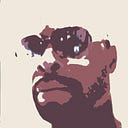Death of the Nightclub?
Written and originally published for AltReading on 11 August 2015
What is the first thing which comes to mind when you hear the word ‘utopia’? For some it is an imagined perfect place, or state of things, and for the majority of people in Reading you are more than likely to reminisce about the two-tier superclub which resided on the outskirts of Reading in Calcot back in the mid to late nineties.
If Utopia was still open today, it would have been running for twenty-one years, and once upon a time was regarded as the go to venue for a drink or post 11pm entertainment.
In 1999 when The Oracle opened, as well as offering shops and restaurants, it came along with themed bars such as the infamous Brannigans and Bar Med which were open to the early hours, and were easily accessible for everyone due to its central location. Around the same time, the short-lived Matrix nightclub opened its doors and drew in clubbers from all over Berkshire, and Southern England, and a number of additional bars sprung up along Friar Street and town such as the Broadwalk, The Litten Tree and Revolutions. Not forgetting the likes of the already established late night venues such as Club RG1s, Nue Valbones and Level One to choose from.
At one time during the peak of this period it was estimated that around 20,000 people would descend on to Reading for a night out, mainly at the weekends. However over a short period of time, all this newfound choice of places to go in the centre of town would begin to have a knock on effect, firstly on Utopia.
The choice was pretty simple, you could pay a mildly expensive taxi ride to the outskirts of town for your nightclub fix, or you could stay in the town centre with easy access for the majority of clubbers to get home from a central location.
Utopia finally closed its doors in 2001 due to competition from town centre venues, followed closely by Club RG1s, Nue Valbonnes, Po Na Na’s and others who called it a day on the town’s dancefloors shortly afterwards. And then in 2006 the licencing laws were changed which allowed town centre venues to be open much longer. Did this spell the beginning of the end of nightclubs in Reading and the rest of the country? According to a recent report 50% of nightclubs in Britain have closed their doors over the last decade.
Lee Buxton, who was one of the main resident DJs at Utopia during its heyday says that this recent statistic is no surprise to people who still work in the nightclub industry in this country:
“Since 2006 smaller venues have been able to open later meaning there is no need to go to a club if you want a late drink. There are plenty of smaller venues where you can do that. Why would you want to leave town and take an expensive taxi ride to a nightclub? It’s really only the big-room venues that have suffered over recent years such as Utopia, simply because there is now more choice in town. Clubland isn’t dying, it’s just become more diluted and fragmented”.
Today in town we have various venues staying open well into the night particularly at the weekends such as Yates and the Walkabout offering a more mainstream affair, whilst the likes of Club20 and The Purple Turtle which has undergone a very noticeable transformation in the last year offering late night specialist and underground music events, and not forgetting The After Dark Club which is still going strong as an alternative venue after all these years.
Has the nightclub finally seen the light of day on the dancefloor in town? Do you still go out ‘clubbing’? Do you prefer the mainstream bars, or smaller specialist clubs and gig venues? Has it become too expensive? Do you stay in? Do you go out in town for the music or to socialise, or both? And what was your favourite nightstop in town from back in the day?
